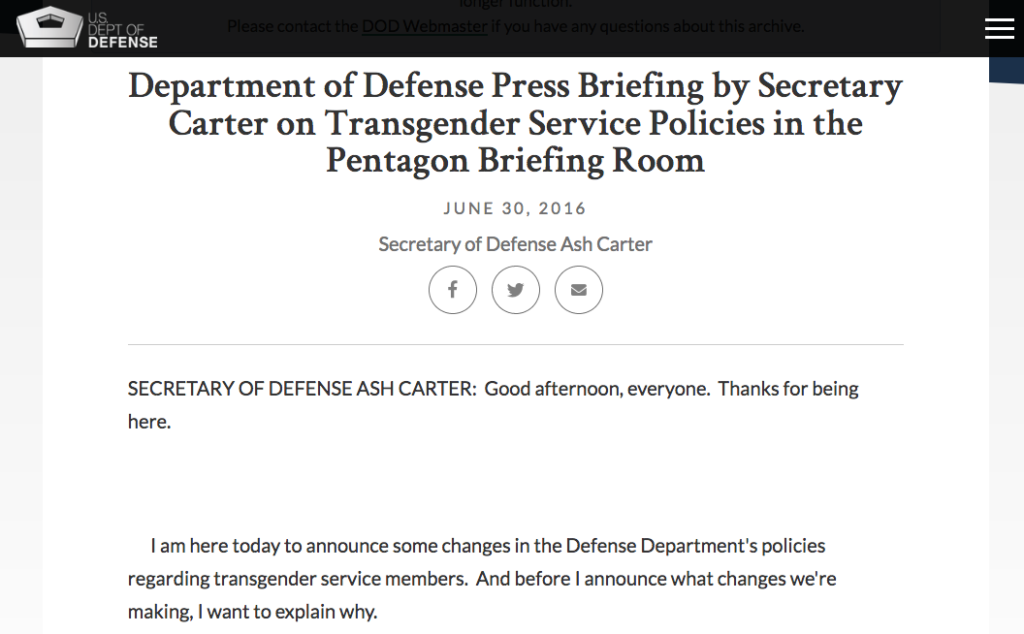Editor’s Note: As part of our coverage of the legal history scholarship that was scheduled to appear at the 2020 Annual Meeting of the Organization of American Historians, we are pleased to offer the following abstract.
Natalie Shibley
“The History of Legal Challenges to the Ban on Transgender Military Personnel”
The current ban on the enlistment of transgender people in the military has frequently been called a version of the “Don’t Ask, Don’t Tell” policy for trans service members. Like the homosexuality ban in place under “Don’t Ask, Don’t Tell,” the trans ban has previously existed in different forms and been challenged in court by service members. This paper examines earlier iterations of the military trans ban and its opponents, focusing primarily on cases from the 1980s. The paper discusses medical disqualification of trans personnel in these early cases and the extent to which these rationales have persisted or transformed in more recent cases. It also considers the case of a soldier expelled from the Army after marrying a trans veteran, showing the entanglement of anti-trans discrimination with the homosexuality ban.


